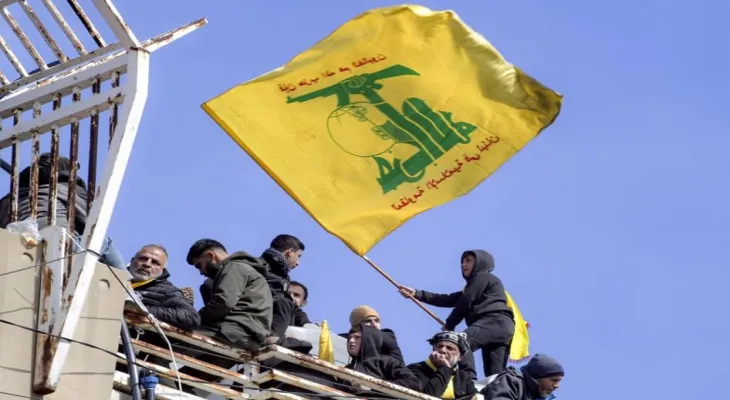Search here
Newspaper
Search here

Arab Canada News
News

Published: April 18, 2025
The Secretary General of "Hezbollah," Sheikh Naeem Qassem, confirmed today, Friday, that the party will not give up its weapons, stating, "We will not allow anyone to take our weapons."
Qassem said, "We are giving diplomacy its chance, and this opportunity is not open-ended. Those who think we are weak are mistaken," adding, "We have options and we fear nothing. If you want to try and keep going, continue, and you will see at the appropriate time we decide."
Qassem described the call for disarming "Hezbollah" as "a free service to the Israeli enemy, and it is a sedition that will not happen," stressing, "We will confront those who work to disarm us just as we confronted Israel."
He pointed out that "the ceasefire agreement is exclusively in the south of the Litani River and we have implemented all that is required of us," noting that "the President of the Republic is the primary authority responsible for setting the dialogue mechanism and we are ready to participate in that at the appropriate time."
The Secretary General of "Hezbollah" questioned: Does anyone expect us to discuss the defensive strategy under pressure and based on dictations? He added, "Let Israel withdraw and stop its aggressions, and that would be an important step for us to engage in discussions about the defensive strategy."
Earlier today, Friday, the head of the liaison and coordination unit in "Hezbollah," Wafiq Safa, confirmed that the organization informed the Lebanese authorities of its refusal to consider disarming unless Israel completely withdraws from the south of the country, and halts its ongoing "aggressions" despite the ceasefire agreement.
The authorities in Beirut are facing increasing American pressures lately to disarm the Iran-backed party, following the war it fought with Israel which inflicted heavy losses on it in terms of military infrastructure and leadership.
Lebanese officials, led by President Joseph Aoun, confirmed their commitment to "restricting weapons in the hands of the state" and asserting its authority over all its territories, especially in areas of the south of the country adjacent to the border with Israel.
Defensive Strategy
Safa said today, "There is nothing called disarming; there is what the president spoke about… the defensive strategy." He added in statements to a party-affiliated radio, "Isn’t it logical for the Israeli to withdraw first, and then release the prisoners, and third, stop the aggressions… and after that, we can discuss a defensive strategy?" indicating that this position was "communicated" to Aoun by the party and its ally, Speaker of the Parliament Nabih Berri.
He confirmed that the goal is to agree on "a defensive strategy to protect Lebanon, not to create a strategy to let the party surrender its weapons."
The ceasefire agreement, which was brokered with U.S. mediation, stipulated the withdrawal of "Hezbollah" fighters from the border area south of the Litani River (approximately 30 kilometers from the border), and dismantling their military structures within it, in exchange for strengthening the Lebanese army and the United Nations Interim Force (UNIFIL) to deploy near the border with Israel.
According to the resolution, Israel was supposed to withdraw all its forces from areas in southern Lebanon it had penetrated during the war, but Tel Aviv maintained its military presence in five heights it considers "strategic," allowing it to oversee both sides of the border. Israel continues to carry out strikes it claims target members of the party or military "infrastructure" belonging to it.
The army seizes weapons
During her visit to Lebanon in April, U.S. Deputy Envoy to the Middle East, Morgan Ortagus, stated that Washington continues to pressure the government "for the full implementation of cessation of hostilities, including disarmament of 'Hezbollah' and all militias," noting that this must be done "as soon as possible."
The ceasefire agreement was primarily based on UN Resolution 1701, which ended the Israel-"Hezbollah" war in 2006 and includes the area south of the Litani. The resolution calls for the disarmament of all armed groups not affiliated with the state.
Safa confirmed that the Lebanese army and the party are committed to the agreement, especially regarding dismantling military structures and seizing any weapons belonging to "Hezbollah" in southern Litani.
He said, "What is required from 'Hezbollah' has been implemented by 'Hezbollah' in the area of Resolution 1701, and what is required from the Lebanese army has been implemented and is still being implemented to this day. The fact is that the Israeli did not implement this agreement."
Safa added, "Now what the army encounters, it takes, this is normal, because the weapons present were either targeted by the Israeli or are what I can call scrap."
A source close to the party informed the French press this month that there are "265 military points belonging to 'Hezbollah' identified in southern Litani, and the party has handed over about 190 points" to the Lebanese army.
Comments